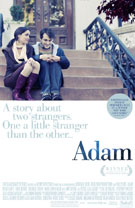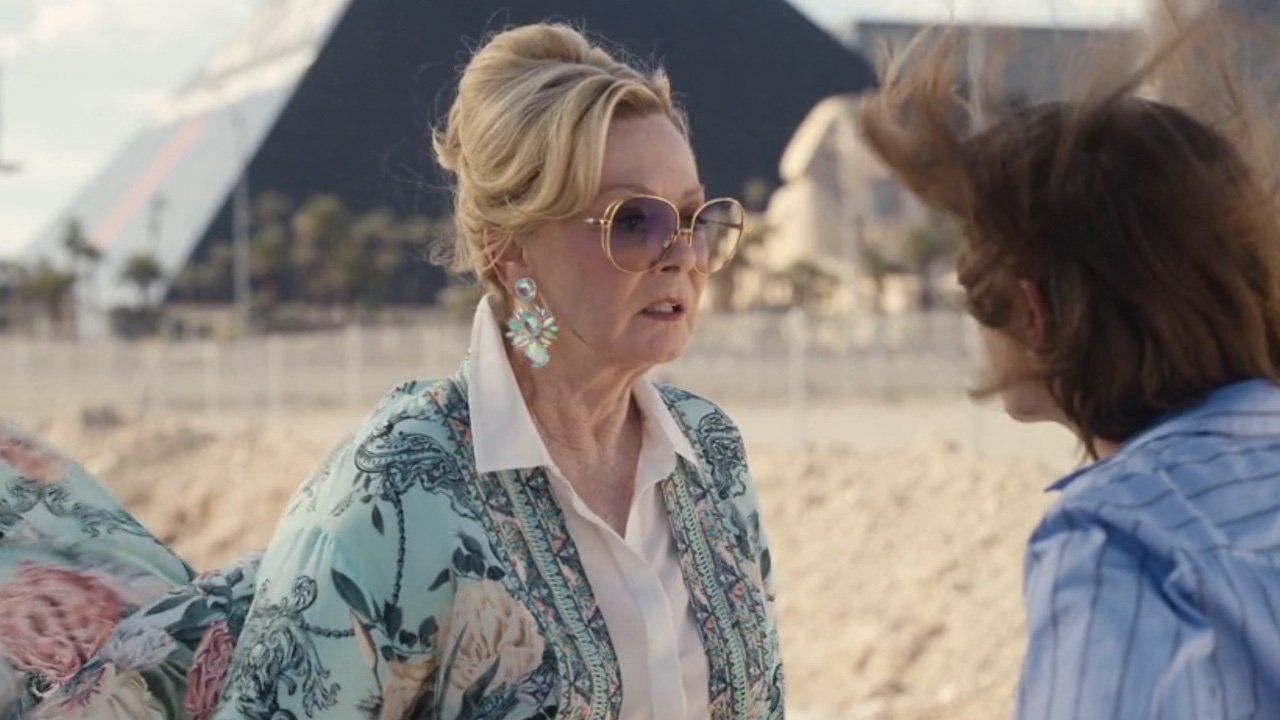Sweet without being overbearing, boasting delectable visuals and a strong pair of lead performances, Adam is much better than what it could have been but still not quite a home run. Telling a story about a young man with Asperberger's and the woman who dares to love him, Adam relies a little too heavily on easy emotional signposts and narrative tricks, but at least deserves credit for avoiding nearly every potential pitfall of movies about people with mental handicaps.
Hugh Dancy carries off a lot of this as Adam, a 29-year-old man who lived with his father in a New York City brownstone until Dad died, leaving Adam to operate numbly through his strict routine and communicate with virtually no one, save a van driver (Frankie Faison) who is friends with Adam for no apparent reason. When schoolteacher Beth (Rose Byrne) moves in downstairs, she's forced to make all the friendship overtures at first, until Adam invites her over to show off something resembling a homemade planetarium in his apartment. He cracks a Forrest Gump jokes, she tunes in to the Asperberger's limitations, and a romantic spark emerges.
From there begins an awkward but endearing romance, as Beth figures out how she can possibly date a man whose brain doesn't have the capacity for empathy, and Adam forces himself to open up to a life that's a little less planned. There's a supblot involving Beth's dad (Peter Gallagher) being investigated for illegal business practices, which allows some conflict to come between Beth and Adam but has nothing at all to do with the overall plot. The Gallagher story is largely a distraction from the emotionally honest relationship between Beth and Adam; it's as if writer-director Max Mayer was so concerned about creating artificial conflict between the two of them that he shoved in a side story to take care of the drama.
Mayer, directing his second film after theatrical adaptation Better Living, goes to town with the cinematic visuals, depicting Central Park as a fairy land and using clever visual motifs to depict the slow dissolution of Adam's closed-off life. But he also leaves room for his actors to breathe, letting Dancy and Byrne bounce off one another nicely, and express in their faces what he smartly leaves out of the dialogue. But even as the film professes to get into the hard truths of relationships, showing Adam's meltdown when Beth tells a lie and her frustration and not being able to understand what's in his mind, there's nothing in Adam that doesn't go down as smoothly as what's in more traditional romances. Thanks to the constraints of the 90-minute movie, Beth and Adam's relationship doesn't have time to get into the potentially ugly stuff.
Dancy is probably the best reason to see the film, proving willing to shake off his pretty boy image from movies like Confessions of a Shopaholic and play a character who, far from the mystical man-child with life lessons to offer, is quite unlikeable at times. And Byrne, for her part, erases the memory of her hysterically overblown performance in Knowing, creating an everywoman character perhaps a little braver and more patient than most of us. But otherwise it's hard to get too worked up over either the pro or cons of Adam-- it's a nice little sit with an earnest message, and pretty visuals and actors to glide you through the duller parts.
Staff Writer at CinemaBlend












